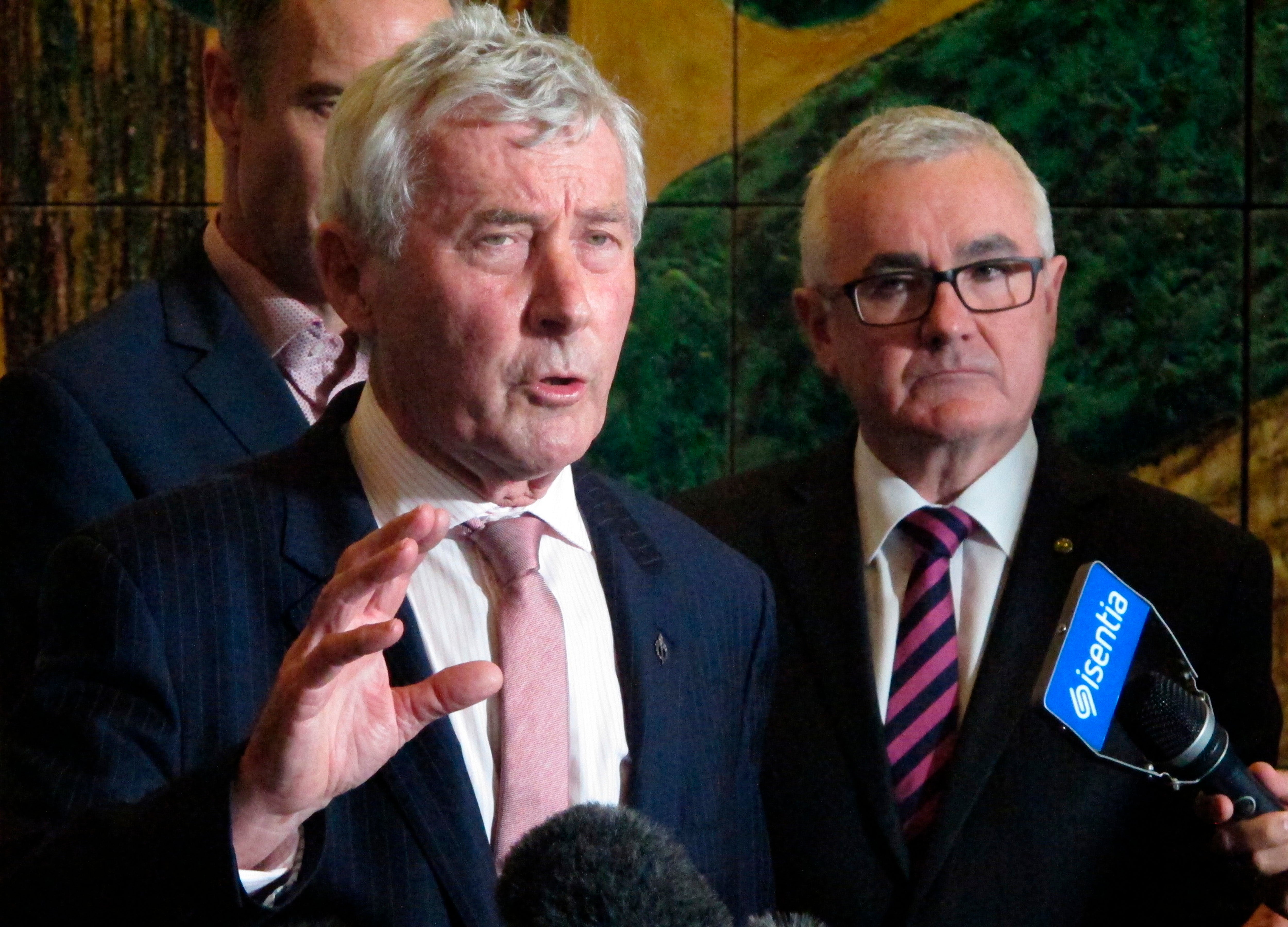Court lifts secrecy in alleged Australian espionage trial
A court has agreed to lift a shroud of secrecy from the trial of a spy’s lawyer that could potentially confirm that Australia bugged East Timor’s government during multibillion-dollar oil and gas negotiations

Your support helps us to tell the story
From reproductive rights to climate change to Big Tech, The Independent is on the ground when the story is developing. Whether it's investigating the financials of Elon Musk's pro-Trump PAC or producing our latest documentary, 'The A Word', which shines a light on the American women fighting for reproductive rights, we know how important it is to parse out the facts from the messaging.
At such a critical moment in US history, we need reporters on the ground. Your donation allows us to keep sending journalists to speak to both sides of the story.
The Independent is trusted by Americans across the entire political spectrum. And unlike many other quality news outlets, we choose not to lock Americans out of our reporting and analysis with paywalls. We believe quality journalism should be available to everyone, paid for by those who can afford it.
Your support makes all the difference.A court agreed Wednesday to lift a shroud of secrecy from the trial of a spy's lawyer that could potentially confirm that Australia bugged East Timor's government during multibillion-dollar oil and gas negotiations.
The Australian government has refused to comment on allegations that the spy, known to the public as Witness K, led an Australian Secret Intelligence Service operation that bugged government offices in the East Timorese capital, Dili, in 2004 to give Australia an unfair advantage during negotiations on the sharing of oil and gas revenue from the seabed that separates the two countries.
K’s lawyer, Bernard Collaery, is charged with conspiring with K to communicate information to East Timor about ASIS’s functions. Collaery won an appeal Wednesday against an Australian Capital Territory Supreme Court judge’s decision to conceal “certain information” about ASIS activities likely to come out in his trial.
The judge ruled in June that the public disclosure of the information “posed a real risk of prejudice to national security.”
Collaery appealed that ruling. He accepted that some sensitive information could not be revealed in open court for security reasons. But he successfully argued for public disclosure of “information relating to the truth of six specific matters.”
The six “Identified Matters” are expected to force authorities to confirm in open court the spying operation that has embarrassed the Australian government for years.
Three Court of Appeal judges unanimously overturned the non-disclosure orders that had been brought by former Attorney-General Christian Porter to conceal evidence. Porter authorized the prosecutions of Collaery and K in 2018.
“The Court of Appeal accepted that public disclosure of information relating to the truth of the Identified Matters would involve a risk of prejudice to national security,” the judges said in a statement.
“However, the Court doubted that a significant risk of prejudice to national security would materialize. On the other hand, there was a very real risk of damage to public confidence in the administration of justice if the evidence could not be publicly disclosed,” they said.
The judges also said that open hearing of criminal trials is important because it “deterred political prosecutions.”
Collaery, who is isolating at home in Canberra as a pandemic precaution, did not attend the court session. He welcomed the court decision.
“It’s a wonderful day for the legal profession and for the law,” Collaery told The Associated Press.
“When powers are misused, the courts and the profession are the bulwark,” Collaery said, referring to the government’s attempt to use national security laws to try him in secret.
Attorney-General Michaelia Cash, who replaced Porter in March, is “carefully considering the judgment,” her office said in a statement.
Collaery is also charged with five counts of breaching security laws by sharing ASIS classified information with journalists after his home and office were raided by police in 2013.
Each charge carries a maximum 2-year prison sentence. The increasingly secretive government has since increased those penalties to 10 years in prison.
K pleaded guilty to conspiring with Collaery and was released from a Canberra court in June with a three-month suspended prison sentence.
The media and public were excluded from half of his two-day sentencing hearing when classified evidence was discussed.
There was no evidence heard in open court of a bugging operation, which media have reported was conducted under the guise of a foreign aid program.
East Timor has argued that a 2006 treaty to share oil and gas revenue was invalid because Australia had failed to negotiate in good faith by engaging in espionage.
The government canceled K’s passport before he was to testify at the Permanent Court of Arbitration in The Hague in 2014 in support of East Timor’s challenge to the validity of the treaty.
Australia and East Timor agreed on a new maritime border and revenue-sharing treaty in 2018. A year later, Australian Prime Minister Scott Morrison arrived in Dili to formalize the agreement and was targeted by street protests demanding charges against K and Collaery be dropped.